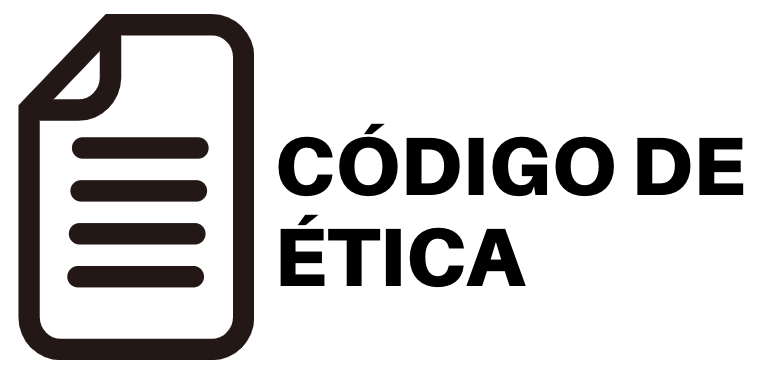Influence of the cultural background of the psychotherapist: considerations from the experience of Otakus
DOI:
https://doi.org/10.33936/psidial.v3i1.6453Keywords:
cultural background, psychotherapy, transculturality, therapeutic bondAbstract
The present study aimed to analyze the experience of members of the Otaku subculture in the psychotherapy process, specifically regarding the perception of how therapists' cultural background influences this process. This work adopted a qualitative, cross-sectional, and exploratory strategy. Five individuals, with an average age of 21.80 years (SD = 1.92 years), participated and responded to a semi-structured interview. The interviews were recorded, transcribed, and subjected to lexical analysis using the Interface software for Multidimensional Text and Questionnaire Analysis - Iramuteq. Five classes were identified: 1) Explanation of the Otaku experience, 2) Identification of Otakus, 3) Experience of pop culture, 4) Introduction to the world of anime, and 5) Importance of therapist understanding. The results indicate that Otakus attempt to explain their identification with anime content to therapists, and identification with anime characters is also relevant as it reflects important values and desires of the patients. The study highlights the importance of understanding the patient's cultural background in therapy, acknowledging the difficulty Otakus face in expressing their experience to therapists. It emphasizes the need for therapists to develop cultural humility, engage in critical self-examination of cultural awareness, and flexibility in their therapeutic approach to ensure effective and inclusive treatment.
Downloads
References
Anders, C., Kivlighan, D. M., Porter, E., Lee, D., & Owen, J. (2021). Attending to the intersectionality and saliency of clients’ identities: A further investigation of therapists’ multicultural orientation. Journal of Counseling Psychology, 68(2), 139–148. https://doi.org/10.1037/cou0000447
Barros, C. (2016). A influência da cultura Otaku na sociedade ocidental. E- Revista de Estudos Interculturais, 4, 2–46. https://doi.org/10.34630/EREI.VI4.3945
Carlos, G. S. (2010). Identidade(s) no consumo da cultura pop japonesa. Lumina, 4(2), 1–12. https://doi.org/10.34019/1981-4070.2010.v4.20931
Casey, S., Moss, S., & Wicks, J. (2022). Therapists’ experiences of play therapy with Muslim families in Western Countries: The importance of cultural respect. International Journal of Play Therapy, 31(1), 56–70. https://doi.org/10.1037/pla0000142
Cobos, T. L. (2010). Animación japonesa y globalización: La latinización y la subcultura otaku en América Latina. Razón y Palabra, 72.
Faiad, C., Rodrigues, C. M. L., & Lima, T. J. S. (2021). Análise de dados textuais com a Interface de R pour les Analyses Multidimensionnelles de Textes et de Questionnaires (Iramuteq). In C. Faiad, M. N. Baptista & R. Primi (Orgs.). Tutoriais em análise de dados aplicados à psicometria. (p. 420–435). Vozes.
Foronda, C., Baptiste, D.-L., Reinholdt, M. M., & Ousman, K. (2016). Cultural Humility: A Concept Analysis. Journal of Transcultural Nursing, 27(3), 210–217. https://doi.org/10.1177/1043659615592677
Fortim, I. (2018). Naruto: Reflexões sobre um caso clínico. Em I. Fortim & C. R. Lembo (Orgs.), Mangás, Animes e a Psicologia (Vol. 2, p. 29–42). Homo Ludens.
Gonçalves, J., Navio, C., & Moura, P. (2021). The occidental otaku: Portuguese audience motivations for viewing anime. Convergence: The International Journal of Research into New Media Technologies, 27(1), 247–265. https://doi.org/10.1177/1354856520923966
Guest, G., Namey, E., & Chen, M. (2020). A simple method to assess and report thematic saturation in qualitative research. PLOS ONE, 15(5), e0232076. https://doi.org/10.1371/journal.pone.0232076
Halovic, S. (2020). Using the Manga/anime Naruto as Graphic Medicine to Engage Clients in Conversational Model Therapy. Psychotherapy and Counselling Journal of Australia, 8(1). https://doi.org/10.59158/001c.71095
Ibaraki, A. Y., & Hall, G. C. N. (2014). The Components of Cultural Match in Psychotherapy. Journal of Social and Clinical Psychology, 33(10), 936–953. https://doi.org/10.1521/jscp.2014.33.10.936
Mosher, D. K., Hook, J. N., Captari, L. E., Davis, D. E., DeBlaere, C., & Owen, J. (2017). Cultural humility: A therapeutic framework for engaging diverse clients. Practice Innovations, 2(4), 221–233. https://doi.org/10.1037/pri0000055
Owen, J., Tao, K. W., Drinane, J. M., Hook, J., Davis, D. E., & Kune, N. F. (2016). Client perceptions of therapists’ multicultural orientation: Cultural (missed) opportunities and cultural humility. Professional Psychology: Research and Practice, 47(1), 30–37. https://doi.org/10.1037/pro0000046
Ratinaud, P. (2020). IRAMUTEQ: Interface de R pour les Analyses Multidimensionnelles de Textes et de Questionnaires (IRaMuTeQ 0.7 alpha 2) [Python]. Laboratoire d’Études et de Recherches Appliquées en Sciences Sociales - lerass. http://www.iramuteq.org/
Soto, A., Smith, T. B., Griner, D., Domenech Rodríguez, M., & Bernal, G. (2018). Cultural adaptations and therapist multicultural competence: Two meta‐analytic reviews. Journal of Clinical Psychology, 74(11), 1907–1923. https://doi.org/10.1002/jclp.22679
Sunderani, S., & Moodley, R. (2020). Therapists’ perceptions of their use of self-disclosure (and nondisclosure) during cross-cultural exchanges. British Journal of Guidance & Counselling, 48(6), 741–756. https://doi.org/10.1080/03069885.2020.1754333
Taylor, R. E., & Kuo, B. C. H. (2019). Black American psychological help-seeking intention: An integrated literature review with recommendations for clinical practice. Journal of Psychotherapy Integration, 29(4), 325–337. https://doi.org/10.1037/int0000131
Trevino, A. Y., Tao, K. W., & Van Epps, J. J. (2021). Windows of cultural opportunity: A thematic analysis of how cultural conversations occur in psychotherapy. Psychotherapy, 58(2), 263–274. https://doi.org/10.1037/pst0000360
Urbano, K. (2021). Beyond Western Pop Lenses: O Circuito das Japonesidades e Coreanidades Pop e seus Eventos Culturais/Musicais em SP e RJ. Antropolitica - Revista Contemporanea de Antropologia, 51. https://doi.org/10.22409/antropolitica2021.i51.a42088
Urbano, K., & Araujo, M. (2021). O fluxo midiático dos animês e seus modelos de distribuição e consumo no Brasil. Ação Midiática – Estudos em Comunicação, Sociedade e Cultura., 21(1), 81. https://doi.org/10.5380/2238-0701.2020n21.05
Yamanaka, T. (2015). The Birth of “Otaku:” Centring on Discourse Dynamics in Manga Burikko. In P. W. Galbraith, T. H. Kam, & B.-O. Kamm (Orgs.), Debating otaku in contemporary Japan: Historical perspectives and new horizons (1o ed, p. 35–50). Bloomsbury Academic.
Downloads
Published
Issue
Section
License
Copyright (c) 2024 Natália Ely Batista, Carlos Manoel Lopes Rodrigues

This work is licensed under a Creative Commons Attribution-NonCommercial-ShareAlike 4.0 International License.





















